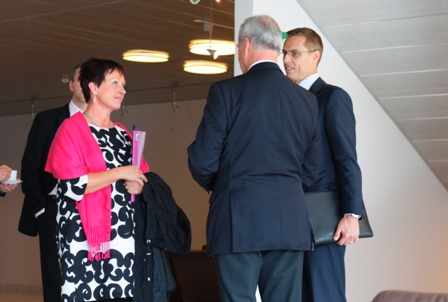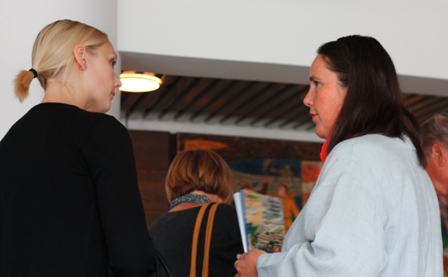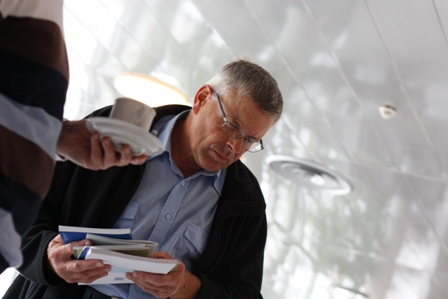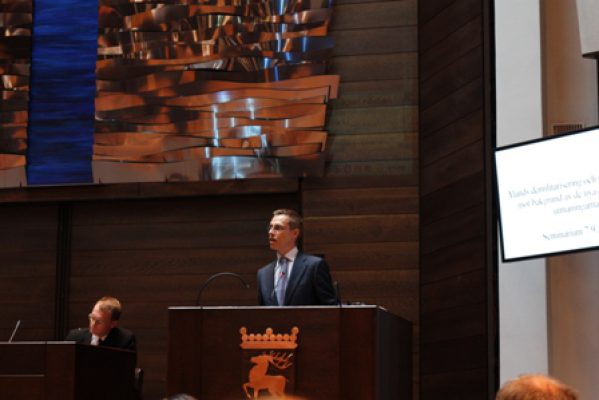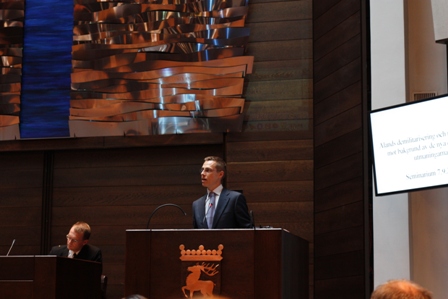Mr Stubb addressed three issues, 1) the development of global politics towards a multipolar but still state-centred system and the demand for “dignified foreign policy”, 2) the European Union’s Common Foreign and Security Policy after the Lisbon Treaty and 3) questions regarding the status of Åland after the Lisbon Treaty, both with regard to the autonomy and the demilitarization and neutralization of Åland. Mr Stubb noted that the Lisbon Treaty doesn’t affect the special staus of Åland, the relevant conventions are still in force. Ms Susanne Eriksson, Secretary General of the Åland Parliament commented that rather than to speak of a status quo it can be said that the status of Åland has been strenghtened by recent development. Ms Elisabeth Nauclér, Member of the Parliament of Finland from Åland, as well as the Director of the Åland Islands Peace Institute Ms. Sia Spiliopoulou Åkermark stressed the possibilities of the Finnish state to consider Åland and its special status as an asset rather than an imposition. Spiliopoulou Åkermark and Anders Gårdberg, Commander in the Nyland Brigade, outlined the current discussions connected to Åland’s demilitarization and neutralization. Spiliopoulou Åkermerk brought attention to the increasingly blurring lines between civil and military actvities and the effects on the demilitarization of Åland. In his concluding remark Mr Stubb remarked that he had enhanced his knowledge of Åland during his visit on the Islands and that it is clear that Åland can contribute to a positive branding of Finland. He also noted that the Åland example could be promoted more explicitly.
